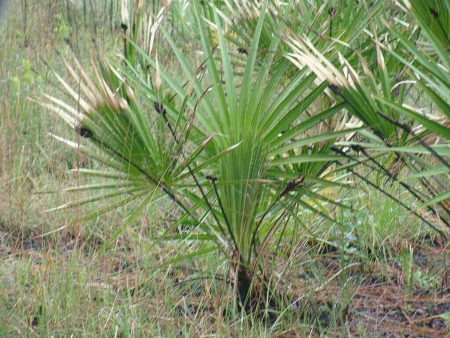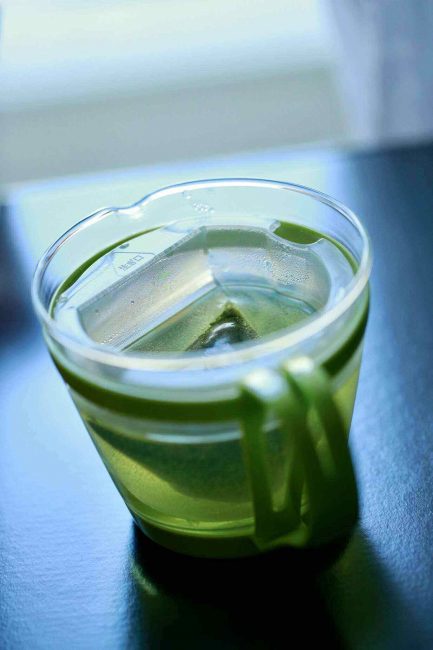Everyone knows that our body changes as we get older. For men, this could mean their prostate has begun to enlarge — this can become an issue. Enlarged prostate or benign prostatic enlargement (BPE) occurs when cells in the prostate unusually multiply and divide — thus causing the organ to increase in size.
BPE is commonly referred to as benign prostatic hyperplasia (BPH). When a man’s prostate becomes enlarge it causes uncomfortable and frustrating symptoms. Most commonly these symptoms consist of sexual difficulties and urinary problems.
These issues can decrease a man’s overall quality of life. Just so everyone is clear, BPH is not associated with cancer. Nor is it generally a serious health risk.
Throughout the year’s scientists have discovered several treatment options. These options do include natural remedies and lifestyle changes. These changes may help ease BPH symptoms.
Natural Remedies to Ease Enlarged Prostate Symptoms
African plum extract (Pygeum) has been shown to contain a wide range of sterols, alcohols, and fatty acids — for example, beta-sitosterol — which have an anti-inflammatory and antioxidant effect on the urogenital tract. There are a few studies that indicate consuming around 100 to 200 mg of pygeum extract daily could help reduce symptoms of an enlarged prostate. If a person chooses to use this remedy, it is recommended to split the dosage into two 50 mg — or 100 mg if taking 200 mg daily — twice a day.
 The most studied remedy is the herbal supplement saw palmetto. This supplement inhibits the production of dihydrotestosterone (DHT) and decreases the size of the inner lining of the prostate.
The most studied remedy is the herbal supplement saw palmetto. This supplement inhibits the production of dihydrotestosterone (DHT) and decreases the size of the inner lining of the prostate.
A remedy that is still being tested is the Zi-Shen Pill (ZSP) — which contains three plants, including Chinese cinnamon. This ancient Chinese medicine dates back to the 13th century. Researchers have found that the Zi-Shen recipe has reduced rates of BPH in rats.
Some people have used a rye-grass pollen supplement called Cernilton. It has been included in several registered pharmaceutical treatments for enlarged prostate. Cernilton has not been proven to reduce the impact of BPH on a large scale. Some people indicate it could reduce the overall size of the prostate.
Indigenous Brazilian tribes and communities have used the babassu or Orbignya speciosa — a species of palm tree native to Brazil — to alleviate urogenital symptoms and conditions. To do this the natives use dried or ground kernels from the tree.
The oil from the Orbignya speciosa nuts has been shown to inhibit the production of testosterone. The other parts of the nut contain compounds with antioxidant and anti-inflammatory properties.
Additional Supplements to Help Relieve Symptoms of an Enlarged Prostate
Another great supplement is the stinging nettle root. The nettle root contains similar anti-inflammatory and antioxidants as the pygeum and saw palmetto. Most times the nettle root is combined with saw palmetto.
Beta-sitosterol, a compound similar to cholesterol, is found in some plants and seeds — like pumpkin seeds. This compound has been shown to improve urine flow. It can also reduce the amount of urine left in the bladder after one urinates. Issues with urination are a symptom of an enlarged prostate.
According to some studies, taking 10 grams of pumpkin seed extract daily can help with BPH symptoms. One study suggests that lycopene — a naturally occurring pigment found in many fruits and vegetables — may slow the progression of an enlarged prostate.
The richest source of lycopene available to most people is tomatoes. There are a few other vegetables and fruits that contain lower levels of this antioxidant. Generally speaking the deeper red or pink fruit or vegetable is in color — the higher the lycopene content is.
The mineral zinc can reduce the likeliness of an enlarged prostate. Increasing the dietary intake of zinc could help reduce urinary issues associated with an enlarged prostate. People can find zinc in seafood, poultry, and many types of nuts and seeds. For example, sesame or pumpkin seeds.
 A tasty drink high in antioxidants — called catechins — in green tea. Green tea has been shown to enhance the immune system while potentially slowing the progression of prostate cancer. It is very important to remember that green tea contains caffeine.
A tasty drink high in antioxidants — called catechins — in green tea. Green tea has been shown to enhance the immune system while potentially slowing the progression of prostate cancer. It is very important to remember that green tea contains caffeine.
Caffeine stimulates the bladder causing the sudden urge to urinate. This could potentially worsen BPH symptoms.
Chief Medical Officer at HALO D — and Assistant Clinical Professor of Radiology at Loma Linda University School of Medicine in California — Dr. John F. Feller stated, “Anything that’s good for your heart and good for your brain is also good for your prostate.”
Helpful Tips for Managing BPH
Some helpful tips to help manage symptoms of an enlarged prostate are:
- Urinating at least once before leaving home. This can help prevent leakage or other public incidents.
- Attempt to pee a few minutes after urinating. This helps drain the bladder in between bathroom visits.
- No fluids at least two hours before bedtime. This will help a person avoid going to bed with a full bladder.
- Staying hydrated. Drinking at least two liters of water a day will help.
- Avoiding and reducing stress will help lessen the urge to urinate.
- Limit or avoid products that can cause dehydration. For example, decongestants and cold medications.
- Absorbent urinary pads or pants to absorb urine leaks will decrease wetness and discomfort.
- Using urinary sheaths to drain the urine into a small bag that is strapped to the leg. Urinary sheaths are condom-shaped and fit over the penis.
- Using urethral massage. This is done by gently pressing the fingers upwards from the base of the scrotum to squeeze any urine left in the urethra, This will help prevent any leakage later.
Doctors and researchers are still trying to figure out exactly why a prostate can become enlarged. Some studies suggest that BPH is caused by hormonal changes. Although there is not enough information to fully understand why it happens. Using these remedies and tips may help reduce any symptoms one has due to an enlarged prostate.
Written by Sheena Robertson
Sources:
Medical News Today: How to shrink the prostate naturally; by Jennifer Huizen — Medically reviewed by Karen Cross, FNP, MSN
Imaware: The 6 Most Effective Natural Remedies for an Enlarged Prostate; by Devon Scoble; Medically reviewed by Dr. John F. Feller, MD
A. Vogel: 6 natural remedies for enlarged prostate symptoms; by Dr. Jen Tan — Men’s Health Advisor
Featured Image Courtesy of Daftar, gratis!’s Pixabay Page – Creative Commons License
Inline Image by Sallicio Courtesy of Wikimedia – Creative Commons
Inline Image by O. Heda’s Flickr Page – Creative Commons License

